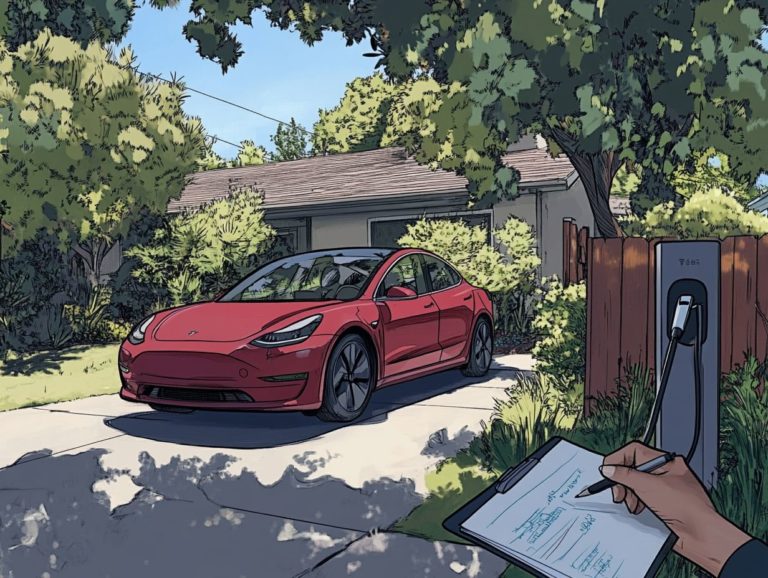A Guide to EV Specifications You Should Know
Choosing the right electric vehicle (EV) can indeed feel overwhelming, especially with a multitude of specifications vying for your attention.
From battery capacity and range to charging options, every detail significantly impacts your driving experience. This guide breaks down the essential EV specifications, helping you discern what truly matters for your lifestyle. It also provides insights on how to assess these specifications and offers invaluable tips for selecting the perfect EV tailored to your unique needs.
Get ready to discover how these specs can transform your driving experience! Understanding these specifications is not just helpful; it s essential for making an informed choice!
Contents
Key Takeaways:
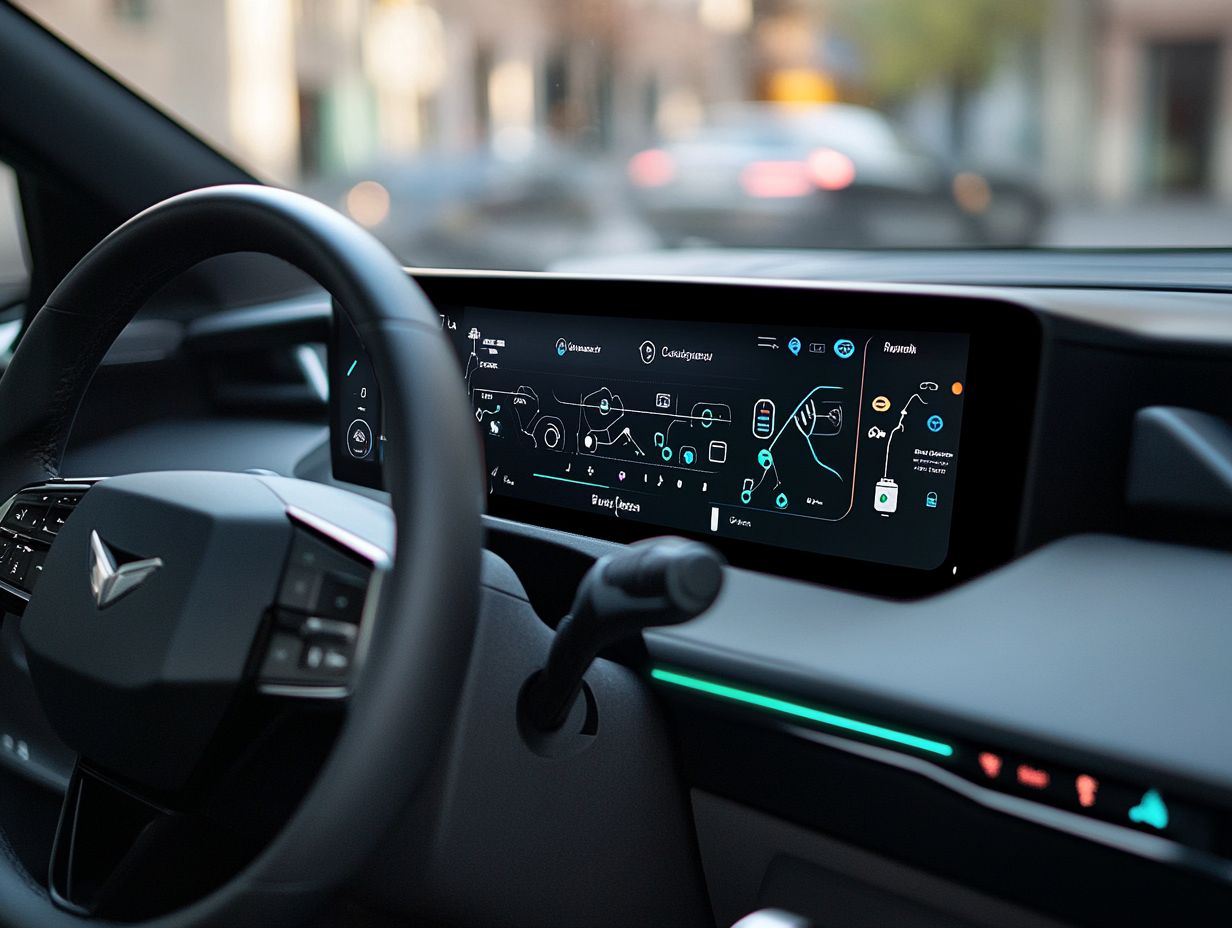
- Battery capacity and range are important EV specifications to consider, as they directly affect the distance an EV can travel on a single charge.
- Charging time and options should be evaluated when choosing an EV, as they can impact the convenience and accessibility of charging your vehicle.
- Consider motor power and performance, as they can affect the acceleration and overall driving experience of the vehicle.
What are EV Specifications?
EV specifications serve as essential metrics that define the performance, efficiency, and overall characteristics of electric vehicles (EVs). To better understand these variations, it’s helpful to explore the different types of EVs available, including key aspects such as battery capacity, energy consumption, driving range, and charging options, which can vary dramatically between models like the Tesla Model Y, Nissan Leaf, and Chevrolet Bolt.
To understand the differences between electric and gas-powered cars, pay close attention to specific performance metrics, such as horsepower the power that helps the car accelerate quickly and kilowatts. Evaluate these specifications before you decide.
Assessing these metrics not only aids you in selecting the right model but also significantly contributes to your overall driving experience. Take the Tesla Model Y, for example. With its remarkable battery size and outstanding energy efficiency, it offers you extended range and quick acceleration. These features are sure to attract those who prioritize performance.
On the flip side, the Nissan Leaf emphasizes affordability and practicality, illustrating how varying energy consumption can affect daily usability and charging frequency. You can align your choices with your needs by comparing specifications.
By comparing these specifications, you can better align your choices with your personal needs, ensuring a satisfying and efficient journey on the road.
Key EV Specifications to Consider
When you’re exploring electric vehicles, it’s crucial to consider several key specifications. Refer to a guide to test driving electric vehicles to ensure the perfect match for your lifestyle and driving preferences.
Battery capacity is paramount, as it directly influences your driving range a common source of concern often referred to as range anxiety. Equally important is grasping the charging time and the available options, such as Level 2 and Level 3 charging.
This knowledge is vital for a smooth integration into your daily routine, especially as you evaluate various models like the Tesla Model Y and Nissan Leaf.
Battery Capacity and Range
Battery capacity stands as one of the most pivotal specifications for electric cars, determining not only the energy stored but also directly influencing your vehicle’s driving range. Measured in kilowatt hours (kWh), the size of the battery is essential for grasping how far you can journey on a full charge, addressing concerns such as range anxiety and overall utility.
Consider models like the Tesla Model Y and the Nissan Leaf; their differing capacities significantly impact their respective ranges and real-world performance.
The Tesla Model Y typically offers you between 300 to 326 miles on a full charge, all thanks to its larger battery capacity. In contrast, the Nissan Leaf generally provides around 150 to 226 miles, depending on which variant you choose.
It’s crucial to keep in mind that battery capacity can decline over time due to various factors, including your charging habits and environmental conditions. This degradation affects not just your driving range but also highlights the importance of understanding battery warranties, which often provide reassurance regarding performance longevity.
Therefore, as you contemplate your options, be sure to weigh these aspects carefully when selecting your electric car model.
Charging Time and Options
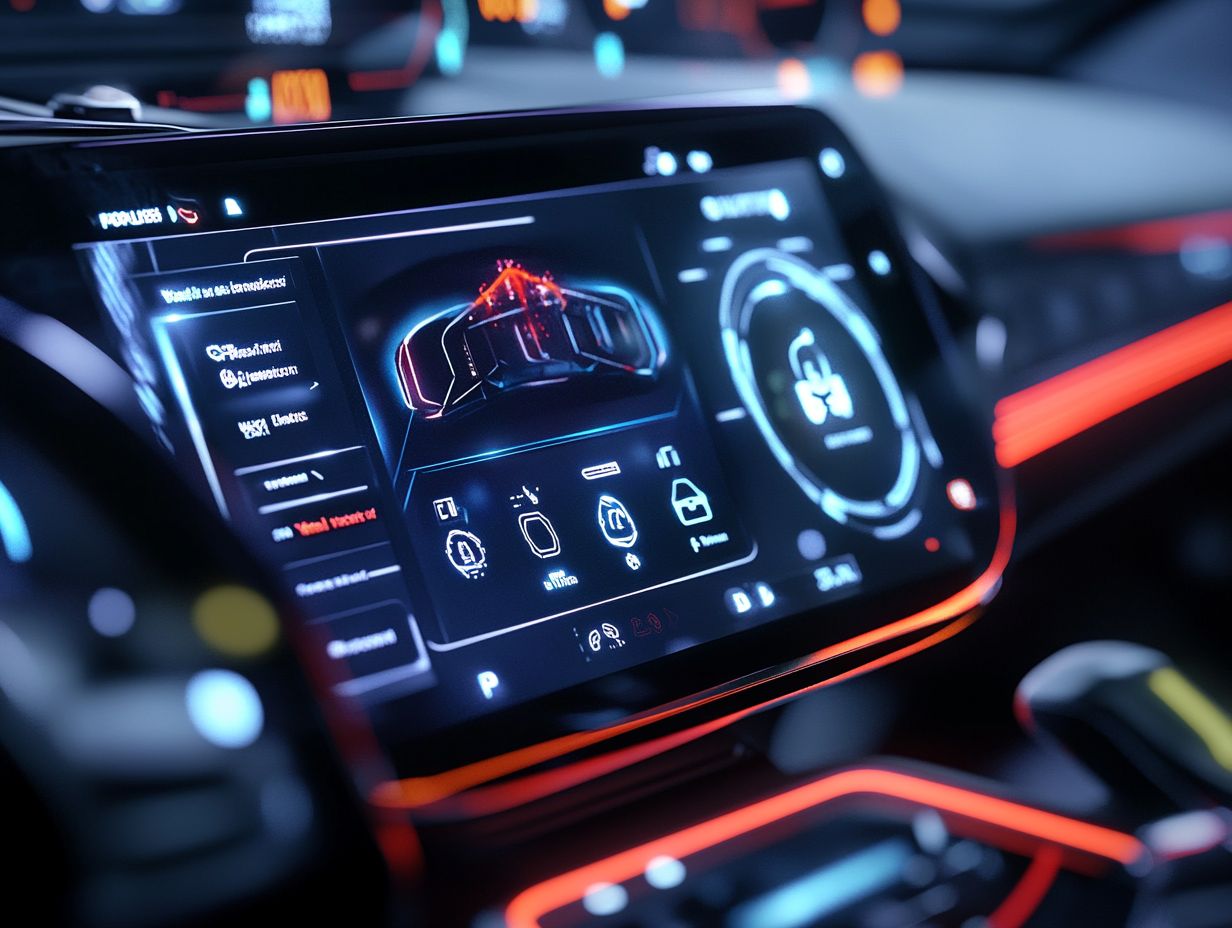
Charging time and options are crucial elements of the electric vehicle experience. They significantly impact how effortlessly these cars integrate into your daily life.
Understanding the distinctions between Level 2 and Level 3 charging can profoundly enhance the convenience of owning an electric vehicle. For example, while Level 2 charging is ideal for home use, Level 3 charging offers rapid refueling capabilities. It is essential to evaluate your charging infrastructure needs.
Each charging type presents its own set of advantages and disadvantages. Level 2 chargers are relatively affordable to install and ensure your vehicle is primed and ready each morning after a night of charging. They typically require several hours to reach full capacity, which can be a hassle if you have a busy schedule.
On the flip side, Level 3 stations deliver quick charging in 30 minutes or less, making them perfect for long journeys. However, they are often found in public areas and may not always be readily accessible.
Owning popular models like the Tesla Model Y or Nissan Leaf makes having a suitable home charger vital for a smoother driving experience. A good home charging setup can significantly reduce your reliance on public stations, leading to a more enjoyable driving experience.
Motor Power and Performance
Motor power and performance specifications are crucial when evaluating electric vehicles. They significantly influence both driving dynamics and energy consumption.
Unlike traditional gas-powered cars that often tout horsepower, electric vehicles use electric motors, delivering instantaneous torque for a truly unique driving experience. Understanding MPGe (miles per gallon equivalent) gives you valuable insight into the efficiency of models like the Tesla Model Y and Nissan Leaf.
This immediate access to torque means electric vehicles can accelerate more swiftly and consistently than their internal combustion rivals, often leaving conventional cars in the dust at stoplights. Performance metrics, such as 0 to 60 mph times and top speeds, reveal how some models can outpace gasoline-powered vehicles.
Take the Porsche Taycan, for instance; its staggering acceleration figures rival even the most powerful sports cars. Since electric motors operate efficiently at a range of speeds, you enjoy seamless power delivery and smoother rides that enhance your overall driving experience.
These advantages highlight not only the technical prowess of electric motors but also their pivotal role in ushering in a more sustainable and exhilarating future in transportation.
Interior Space and Design
The interior space and design of electric vehicles are pivotal in shaping your comfort and overall experience as a passenger. Unlike traditional gas-powered cars, electric vehicles often boast more spacious interiors, thanks to the absence of a bulky internal combustion engine.
Models like the Tesla Model Y, Nissan Leaf, and Chevrolet Bolt showcase thoughtful design elements that prioritize both comfort and aesthetic appeal. This makes them ideal for a variety of lifestyles.
You ll find that enhanced cabin layouts provide not only more legroom but also a seamless flow from front to back. This allows you to feel less confined during your journey.
Many electric vehicles also embrace sustainable materials in their interiors, emphasizing eco-friendliness while still delivering a touch of luxury.
Features like expansive panoramic sunroofs and customizable ambient lighting create an inviting atmosphere. The integration of advanced technology, including intuitive touchscreen interfaces and smartphone connectivity, elevates your driving experience, ensuring accessibility and convenience for everyone on board.
Ultimately, these vehicles do more than simply transport you; they cultivate a holistic environment that resonates with modern living.
How to Evaluate EV Specifications
Evaluating EV specifications is a crucial step for you as a potential buyer aiming to grasp the performance, efficiency, and overall fit of electric vehicles for your lifestyle. Dive into key metrics to find your perfect EV match quickly! Focus on aspects like battery life, charging options, and performance statistics, along with understanding EV charger compatibility, all of which can significantly influence your ownership experience.
Tackling concerns like range anxiety and understanding how different specifications apply to specific models will enable you to make a smart choice.
Factors to Consider
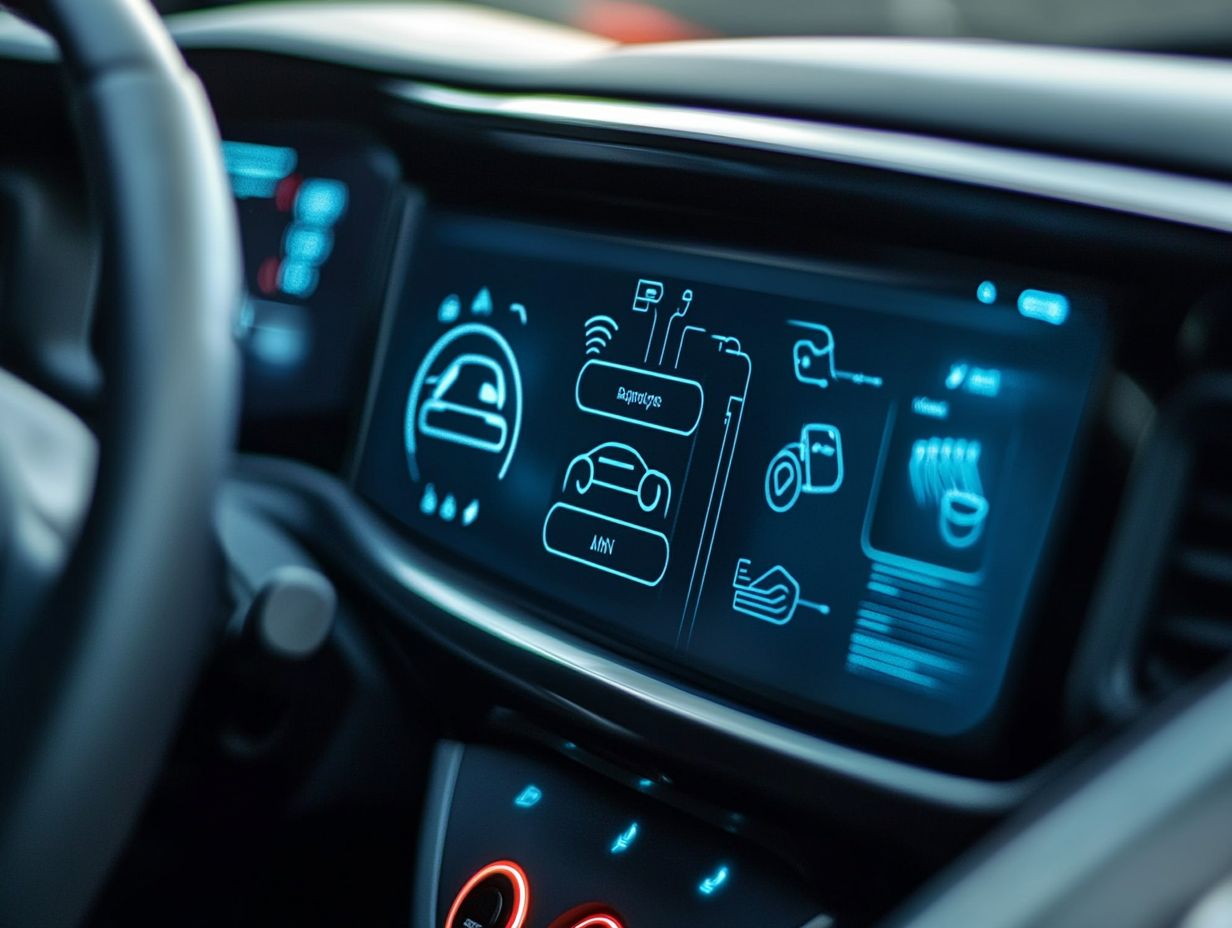
When evaluating electric vehicles, think about what matters most to you. Key factors include how fast the car goes and how much energy it uses, as well as practical aspects like driving range and available charging options.
For instance, the Tesla Model 3 is known for its exhilarating acceleration and an EPA-estimated range of over 350 miles, making it a fantastic choice for longer journeys. Alternatively, the Chevrolet Bolt is a more budget-friendly option with a respectable range of around 259 miles.
Local charging infrastructure becomes vital; exploring the availability of charging stations in your area can significantly enhance your ownership experience.
By diving into these details, you can make smart choices that truly cater to your specific needs and preferences.
Choosing the Right EV for Your Needs
Selecting the perfect electric vehicle demands careful evaluation of your personal preferences, driving habits, and unique requirements to ensure optimal satisfaction.
Considerations like battery capacity, driving range, and charging options play a pivotal role in determining which model suits you best, whether it’s a Tesla Model Y, a Nissan Leaf, or a Chevrolet Bolt.
By aligning these specifications with your daily routine and travel patterns, you can make a smart choice that elevates your EV experience to new heights.
Tips for Finding the Perfect Fit
Finding the right electric vehicle requires a blend of research, comparison, and firsthand experiences think test drives that let you discover which model fits your needs best. Start by comparing EV specifications, such as battery life, performance metrics, and charging options.
Engaging in test drives lets you experience the vehicle’s comfort, handling, and technology firsthand, helping you solidify your choice among popular models like the Tesla Model Y and Nissan Leaf.
As you navigate this process, reflect on your daily driving habits and specific requirements whether it s cargo space or tech features that matter most to you. Utilize online resources, from consumer reviews to detailed comparison sites, allowing you to assess various models side by side.
Don t overlook warranty coverage and available incentives, as these can significantly influence your overall cost of ownership.
Also, check local charging infrastructure to ensure you have convenient access, especially if longer trips are on your agenda. By taking these thoughtful steps, you can feel confident that your chosen electric vehicle will not only complement your lifestyle but also meet your performance and efficiency expectations.
Frequently Asked Questions
What are EV specifications?
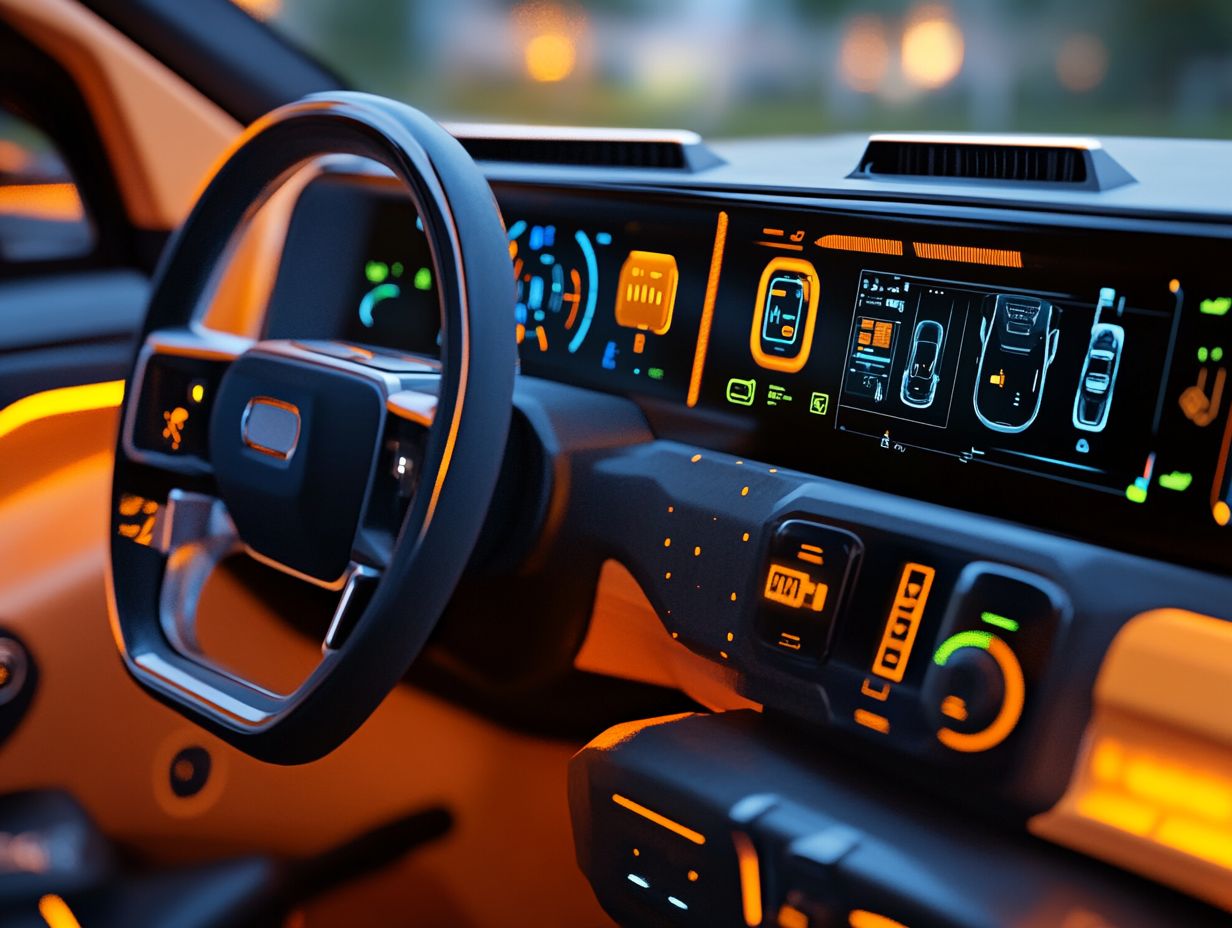
EV specifications are details about the battery, motor, range, charging time, and other performance metrics of an electric vehicle, alongside important aspects of understanding EV regulations and maintenance.
Why is it important to know about EV specifications?
Understanding EV specifications helps you make an informed decision when purchasing an electric vehicle. For more insights, check out these EV buying tips that allow you to compare different models and determine which one best suits your needs.
Ready to explore your EV options? Visit a dealership today to find the perfect match for your lifestyle!
What is the range of an electric vehicle?
The range of an electric vehicle is the distance it can travel on a single charge. It typically varies by model, ranging from 100 to over 300 miles.
How long does it take to charge an electric vehicle?
Charging time varies by model and charger type.
On average, it can take between 30 minutes to 12 hours to fully charge an EV.
What is the difference between kW and kWh in EV specifications?
kW means how much power the motor gives. kWh refers to the total energy stored in the vehicle s battery, affecting its driving range.
Can I use a regular outlet to charge my electric vehicle?
It’s not recommended to use a regular outlet for charging.
For faster, more efficient charging, choose a dedicated EV charging station or a high-voltage outlet.






